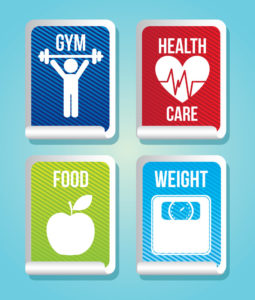Metabolism is the process by which your body converts what you eat and drink into energy. During this complex process, calories in food and beverages are combined with oxygen to release the energy your body needs to function.
Even when you’re at rest, your body needs energy for all its “hidden” functions, such as breathing, circulating blood, adjusting hormone levels, and growing and repairing cells. The number of calories your body uses to carry out these basic functions is known as your basal metabolic rate (BMR) — what you might call metabolism.
What is a metabolic disorder?
A metabolic disorder occurs when abnormal chemical reactions in your body disrupt this process. When this happens, you might have too much of some substances or too little of other ones that you need to stay healthy. There are different groups of disorders. Some affect the breakdown of amino acids, carbohydrates, or lipids. Another group, mitochondrial diseases, affects the parts of the cells that produce the energy.
You can develop a metabolic disorder when some organs, such as your liver or pancreas, become diseased or do not function normally. Diabetes is a classic example.

What influences your metabolism?
Here are ten factors that affect BMR and metabolism:
- Muscle mass. The amount of muscle tissue on your body. Muscle requires more energy to function than fat. So the more muscle tissue you carry, the more energy your body needs just to exist. (Resistance or strength training is most effective for building and maintaining mass.)
- Age. As you get older, your metabolic rate generally slows. This is because of a loss of muscle tissue and changes to hormonal and neurological processes. During development children go through periods of growth with extreme rates of metabolism.
- Body size. Those with bigger bodies have a larger BMR because they have larger organs and fluid volume to maintain.
- Gender. Men generally have faster metabolisms than women.
- Genetics. Some families have faster BMR than others with some genetic disorders also affecting metabolism.
- Physical activity. Exercise increases muscle mass and powers up your metabolic engines burning kilojoules at a faster rate, even when at rest.
- Hormonal factors. Hormonal imbalances such as hypo & hyperthyroidism can affect your metabolism.
- Environmental factors. Environmental changes such as increased heat or cold forces the body to work harder to maintain its normal temperature and increases BMR.
- Drugs. Caffeine and nicotine can increase your BMR whilst medications such as antidepressants and steroids increase weight gain regardless of what you eat.
- Diet. Food changes your metabolism. What and how you eat has a big influence on your BMR.

Over the years as a naturopath I have heard a lot of misconceptions about metabolism. I try to explain everyone what I know about metabolism and the followings are a few example of the myths/claims about metabolism that I know there are true or not.
Claim: Our metabolic rates can’t change.
The truth: While it’s true that genetics help determine our metabolic rates, we can boost metabolism by increasing lean muscle mass. Muscle is metabolically active, which means that people with lean, muscular bodies need more energy to function than people with a higher percentage of body fat.
Our muscle mass decreases as we age, and this contributes to a slower metabolic rate. But you can counteract this process by picking up the weights to help lessen this decline.
Claim: A diet of green tea and chili peppers will boost metabolism.
The truth: No magic food will speed up metabolism. Some studies have shown that green tea and hot chilies temporarily boost metabolic rates, but the lift isn’t very significant.
The path to a healthy lifestyle includes a balanced eating pattern filled with nutrient-rich foods.
Claim: Eating late at night slows metabolism.
The truth: There is little evidence to support the fact that eating after 8 p.m. causes weight gain. However, you may be more likely to snack mindlessly in the evenings while watching television.
Eat regular meals and snacks throughout the day to prevent extreme swings in hunger and fullness. If you’re eating later in the evening, do so mindfully and put away the snacks when you’re satisfied.
Claim: Very low calorie diets and skipping meals can jumpstart weight loss.
The truth: Creating a large calorie deficit in attempts to lose weight can backfire. Our bodies are smart and programmed for survival. Severely limiting calories can make your body think it’s entering a famine, and that it needs to do more with fewer calories. Your body adapts to the restricted caloric intake, and uses fewer calories to perform the same tasks.
Claim: Women have a slower metabolism than men.
The truth: Women tend to say that men can shed pounds more easily than they can, and there is some truth in saying that men typically have a faster metabolism than women. This is because women tend to have proportionately less muscle. But women athletes have similar metabolisms to men’s. Because men have more testosterone, their bodies are composed of less fat and more muscle, which leads them to burn more calories.
Claim: Your metabolism dictates how easy it is to lose weight.
The truth: Your metabolism is one component of your weight, but it is not the only factor. As listed before, genetics, age, body size, eating disorders, depression, sleep deficiency, environmental factors (screen time, healthful food availability), healthy appetite, hormone changes, and metabolic adaptation are the villains ‘fighting’ our ability to keep the weight off. In fact, low metabolism is rarely the case for weight gain, and there is no relation between initial metabolic rate and successful weight loss.

Resist the urge to diet and instead prioritize healthful foods, including whole grains, legumes, vegetables and fruits, and fun physical activity. Don’t forget about stress management and proper sleep. You cannot be healthy and lose weight if you don’t have a normal, at least 7 hours, restful sleep.
These healthy lifestyle behaviors contribute to overall well-being and will keep you healthy in the long run.
